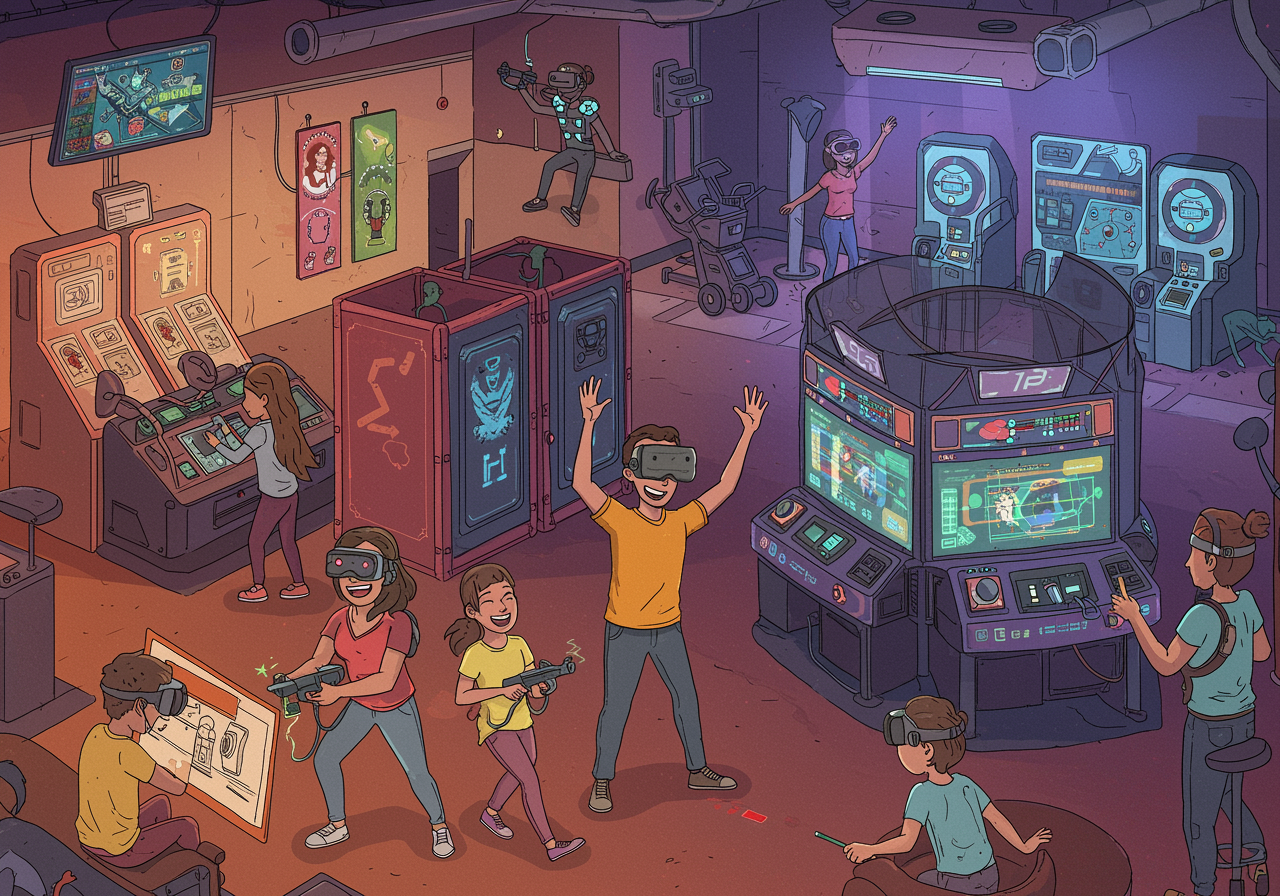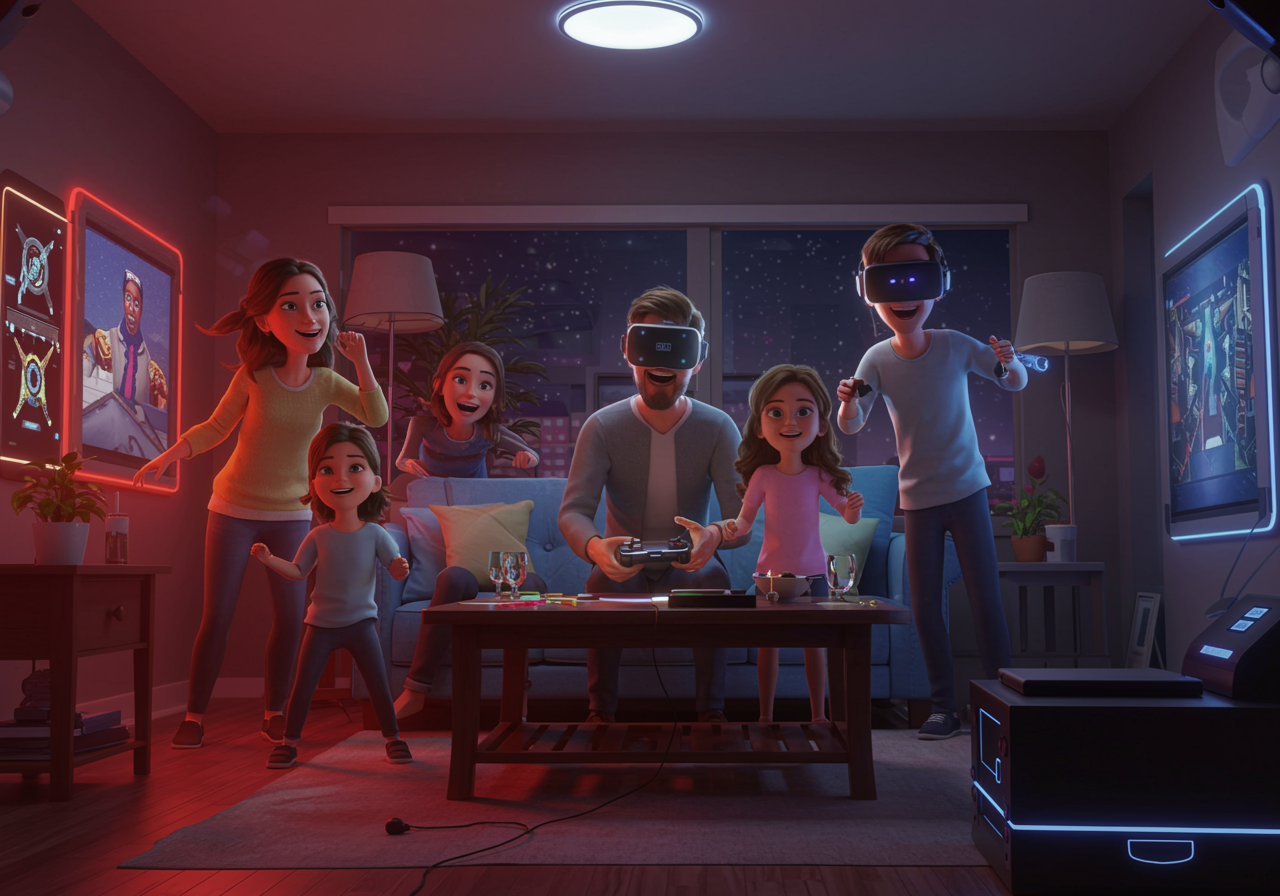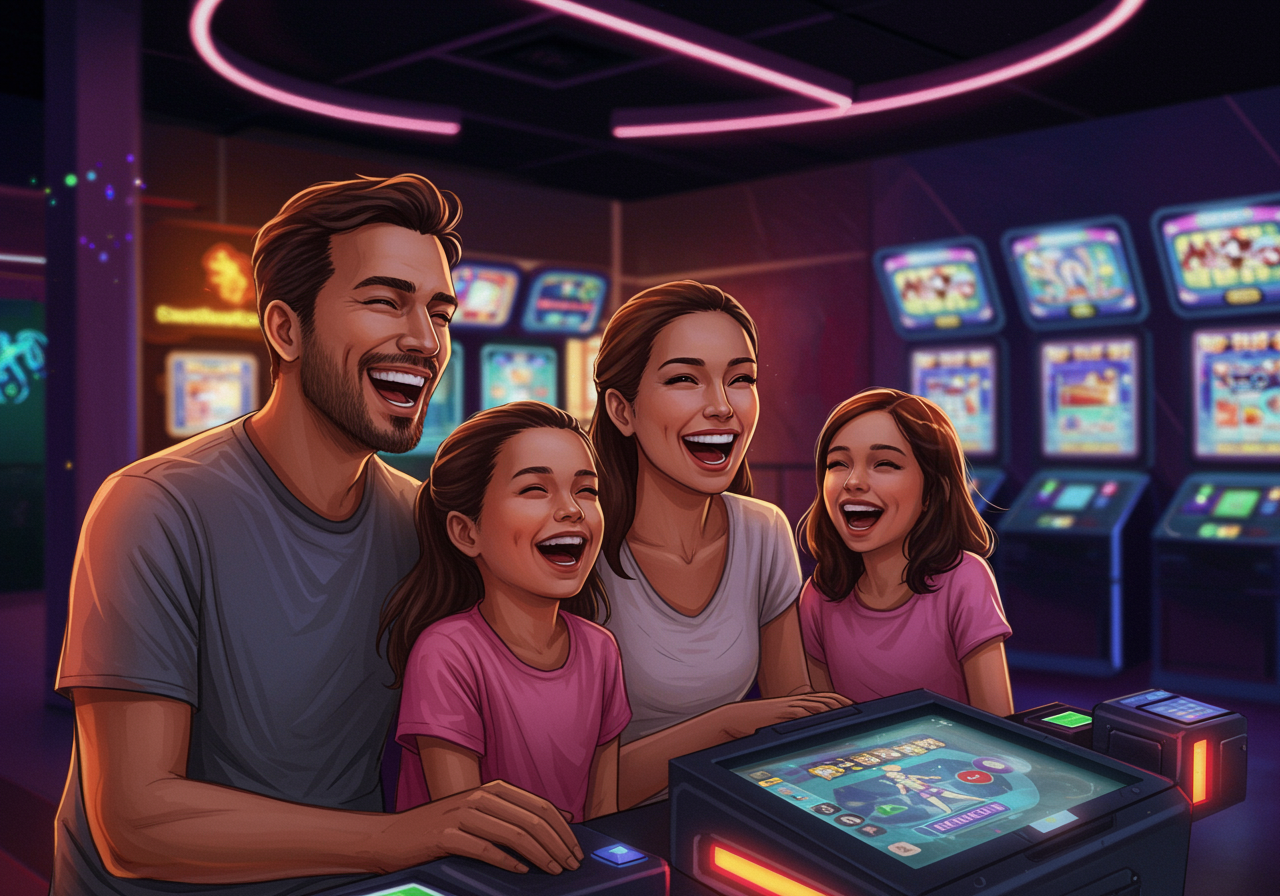Game On or Game Over? How Entertainment Centers Are Reshaping Family Fun
Discover how modern play zones are changing the way families connect and compete
Explore how indoor entertainment centers with VR games, escape rooms, and interactive experiences are transforming family time from quiet conversations to high-energy adventures.
Overview
Remember when family fun meant board games around the kitchen table or a trip to the local bowling alley? Today's indoor entertainment centers are packed with laser tag arenas, VR headsets, escape rooms, and interactive gaming zones that create totally different experiences. These high-tech playgrounds are changing how families spend time together – sometimes bringing everyone closer through shared challenges, and sometimes creating individual experiences where everyone's doing their own thing. It's worth exploring what these changes mean for family connections and whether all that flashing, beeping excitement enhances or replaces the simple joy of just hanging out together.

Understand in 30 Seconds
Get up to speed quickly
- Tech-Powered Family Time: Modern entertainment centers use virtual reality, interactive games, and digital challenges that create shared experiences families never had before.
- Individual vs. Group Fun: Some activities bring families together as a team, while others let each person have their own separate experience even in the same space.
- Active vs. Passive Entertainment: Unlike watching movies together, these centers require families to move, think, and problem-solve together in physical spaces.
- Cost and Frequency Changes: Entertainment centers can be expensive, which might make family outings less frequent but more special and planned.
Real Life Scenario
Situations you can relate to
Imagine the Johnson family planning their Saturday. In the past, they might have gone to a park, played cards, or watched a movie together – activities where they naturally talked and laughed. Now they're heading to a new entertainment center where Mom tries virtual reality for the first time, Dad and the kids team up in an escape room, and everyone competes in laser tag. Are they connecting more because they're sharing exciting new experiences and cheering each other on? Or are they connecting less because they're focused on screens, games, and winning instead of just enjoying each other's company? What happens to the quiet conversations that used to happen during car rides or while waiting for food? Think about it: when your family does something really exciting and high-energy, do you talk more or less than during calm, simple activities?

Role Play
Spark a conversation with “what if” scenarios
What if your family could only choose between a traditional board game night or a trip to a high-tech entertainment center for the next month?
- Role play: Have each family member argue for their choice and discuss what they'd miss most about the other option.
What if you had to design the perfect family entertainment center that brings people closer together instead of splitting them apart?
- Role play: Take turns describing features you'd include, focusing on activities that require teamwork and communication.
What if technology glitched and all the screens went dark during your entertainment center visit?
- Role play: Act out how your family would spend the rest of the time together and discuss whether it would be better or worse.
FAQs
Frequently asked questions people want to know
Are entertainment centers making families less close?
It depends on how they're used. Centers with team-based activities can strengthen bonds, while individual gaming experiences might reduce family interaction time.
Why do kids prefer entertainment centers over simple family activities?
The sensory stimulation, social atmosphere, and sense of achievement from games can feel more exciting than quieter activities, especially for teens seeking novel experiences.
Do entertainment centers replace outdoor family time?
They can if families choose them too often, but they're best used as one option among many rather than a replacement for nature-based or home activities.
Examples in the Wild
See how this works day to day
- Dave & Buster's reported that 65% of their customers come in family groups, with parents and teens gaming together more than ever before (Entertainment Business Magazine, 2023)
- Escape room facilities saw 300% growth in family bookings during 2022-2023, with multi-generational teams becoming their fastest-growing segment (Escape Room Industry Report, 2023)
- Studies show families spend 40% less time in unstructured conversation during entertainment center visits compared to traditional outings like restaurants or parks (Journal of Family Communication, 2023)
- TopGolf and similar venues report that 78% of families say they learned something new about each other during their visit (Family Entertainment Research Group, 2023)
In Summary
What you should know before you start
- Entertainment centers create new opportunities for families to bond through shared challenges and exciting experiences
- High-stimulation environments might reduce natural conversation time compared to calmer family activities
- The key is balance – using entertainment centers as one option while maintaining simpler bonding activities too
- Different family members may connect better through action-based or conversation-based activities depending on their personalities
Pro-tip for Parents
You got this!
If your teen seems more excited about entertainment centers than family game nights, try finding hybrid activities that combine both worlds. Set up tech-free challenges at home that mimic escape room puzzles, or create family tournaments with simple games. The goal isn't to compete with flashy entertainment venues, but to show that excitement and connection can happen anywhere when you're creative and engaged with each other.

Keep an Eye Out For
Find these examples in everyday life
- Notice how your family interacts differently during high-energy vs. low-key activities – do certain environments bring out different sides of each person?
- Watch for news about new entertainment technologies and discuss as a family whether they'd bring you closer or create more individual experiences
- Pay attention to how much natural conversation happens during different types of family outings and activities
Explore Beyond
Look up these related research topics
- How social media changes the way families share and remember experiences together
- The psychology of why humans crave both excitement and calm in relationships
- How different cultures around the world approach family entertainment and bonding time